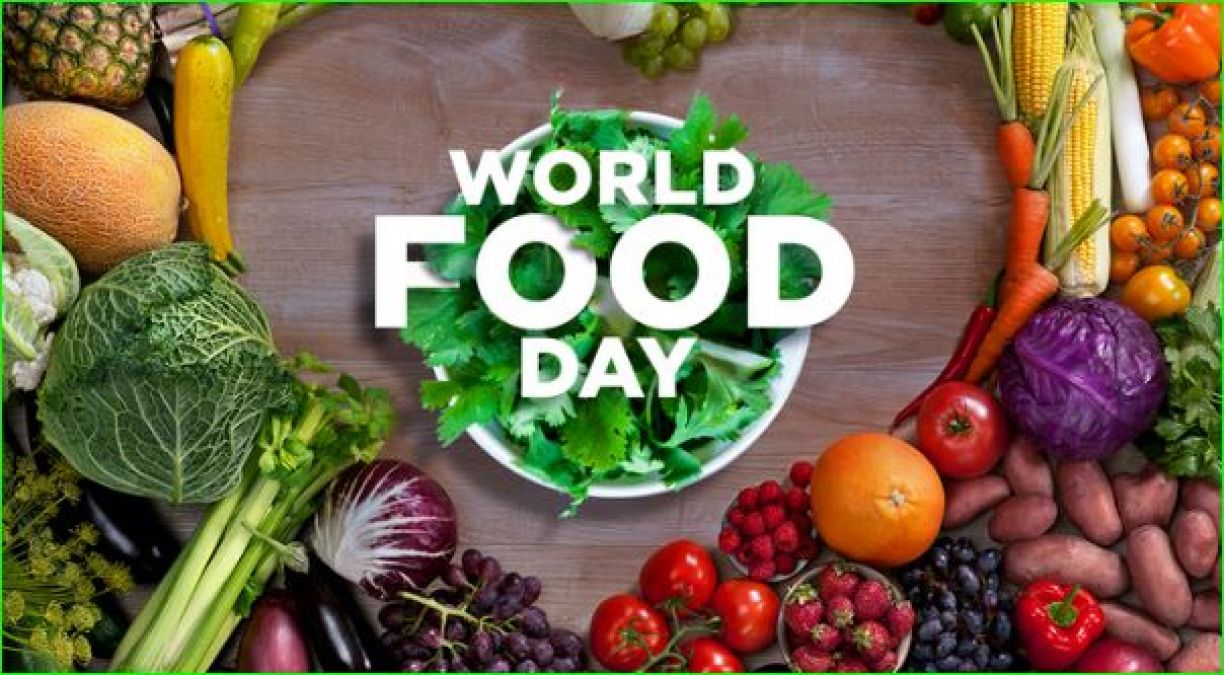16th OCTOBER

World Food Day is not only about celebrating the amazing food that we have the privilege of indulging in, but it is about raising awareness for people who do not have such privilege. There are people all over the world who are suffering from hunger. Starvation is a massive problem in a number of countries, and we need to do more to raise awareness and combat this problem. It seems crazy that we live in a world whereby a large portion of the population can indulge in any sort of food they wish without a second thought while others struggle to put food on the table.
World Food Day is an international day celebrated every year around the world on 16 October in honour of the date of the founding of the Food and Agriculture Organization of the United Nations in 1945. The day is celebrated widely by many other organizations concerned with food security, including the World Food Programme and the International Fund for Agricultural Development.
The World Food Day theme for 2014 was Family Farming: “Feeding the world, caring for the earth”; in 2015 it was “Social Protection and Agriculture: Breaking the Cycle of Rural Poverty”; in 2016 it is Climate Change: “Climate is changing. Food and agriculture must too”, which echoes the theme of 2008, and of 2002 and 1989 before that.
World Food Day (WFD) was established by FAO’s Member Countries at the Organization’s 20th General Conference in November 1979. The Hungarian Delegation, led by the former Hungarian Minister of Agriculture and Food Dr. Pál Romány, played an active role at the 20th Session of the FAO Conference and suggested the idea of celebrating the WFD worldwide. It has since been observed every year in more than 150 countries, raising awareness of the issues behind poverty and hunger.

Key Facts:-
- A HUNGRY PLANET
Over 2 billion people do not have regular access to safe, nutritious and sufficient food. The global population is expected to reach almost 10 billion by 2050.
- COVID-19 FUELS HUNGER
Nearly 690 million people are hungry, up 10 million since 2019. The COVID-19 pandemic could add between 83-132 million people to this number, depending on the economic growth scenario.
- THE COST OF MALNUTRITION
The impact of malnutrition in all its forms – undernutrition, micronutrient deficiencies, as well as overweight and obesity – on the global economy is estimated at USD 3.5 trillion per year.
- TIME FOR ACTION
A steady increase in hunger since 2014 together with rising obesity, clearly indicates the need to accelerate and scale up actions to strengthen food systems and protect people’s livelihoods.
- GROW, NOURISH, SUSTAIN.
Today only nine plant species account for 66% of total crop production, despite the fact that there are at least 30 000 edible plants. We need to grow a variety of food to nourish people and sustain the planet.
- FUTURE FOOD SYSTEMS
Our future food systems need to provide affordable and healthy diets for all and decent livelihoods for food system workers, while preserving natural resources and biodiversity and tackling challenges such as climate change.
- FOOD SYSTEM GAPS
Approximately 14% of food produced for human consumption is lost each year between the stages where it is grown or raised up to when it reaches the wholesale market. More food is wasted at the retail food and consumer stages.
- EMPOWER FOOD PRODUCERS
Over 3 billion people in the world lack access to internet and most of them live in rural and remote areas. Smallholder farmers need greater access to finance, training, innovation and technology to improve their livelihoods.








More Stories
Brent Renaud: Award-Winning US Filmmaker Killed In Ukraine
Bob Wall: ‘Enter The Dragon’ Actor Died At 82
FIFA 2022 Tickets: Here Is Everything You Need To Know